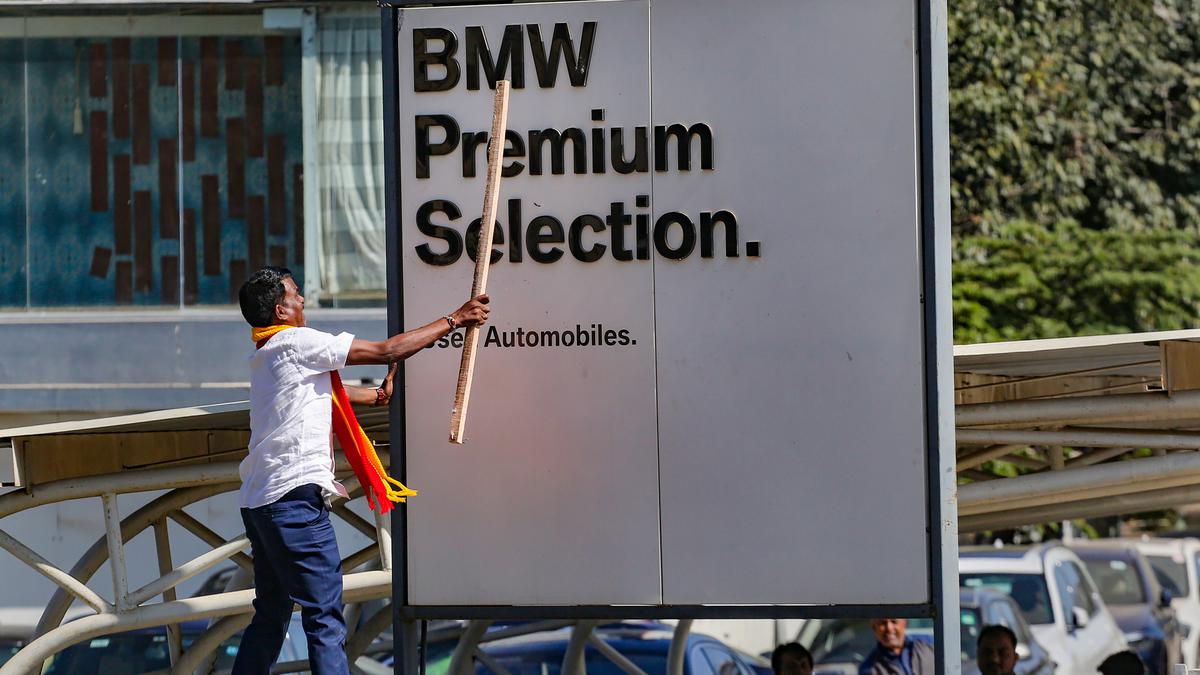
Signs of Bengaluru’s language conundrum Premium
The Hindu
Kannada signboards issue in Bengaluru sparks protests, vandalism & political debate.
The importance given to Kannada, or the lack of it, remains one of the most sensitive issues in Bengaluru, the information technology capital of India. The issue spilt over to the city’s streets again last week, on December 27. Activists of the Karnataka Rakshana Vedike (KRV) — a Kannada group that was born in the late 1990s, when the city emerged on the global stage — took out a protest march against the display of non-Kannada signboards by commercial establishments. However, it soon degenerated into vandalism of shops and signboards.
At least 50 complaints on specific instances of vandalism were registered with the Bengaluru City Police. While the protest rally was on the International Airport road and targeted the new Phoenix Mall of Asia, incidents of vandalism were reported from across the city. Groups of KRV activists were seen roaming the streets warning shopkeepers, pelting stones, and damaging non-Kannada signboards. Police drew ire for not being able to stop the vandalism.
Karnataka’s Congress government, led by Chief Minister Siddaramaiah, which has backed the campaign for Kannada signboards, went into a damage-control-mode to save ‘Brand Bangalore’ and distanced itself from the violence by arresting KRV president T.A. Narayana Gowda. Over 13 cases have been registered, and over 50 KRV activists have been arrested.
The demand for Kannada signboards in the State, especially in its capital, Bengaluru, came up in the early 2000s when the city emerged as the back office of the first world, leading to the verb “Bangalored” being coined for jobs being shifted here from the West.
The then Chief Minister S.M. Krishna, who was championing the city on the global stage, issued a circular in 2002, asking all municipal corporations to ensure that signboards and streets were renamed in Kannada. This circular did not have any legal teeth.
The issue again came to the forefront in 2008, when the then BJP government led by B.S. Yediyurappa added Rule 24 to the Karnataka Shops and Establishments Act, 1961, which said the top half of a signboard had to be in Kannada and the bottom half in any other language.
However, this was challenged in the High Court of Karnataka by a telecom service provider, Vodafone Essar South, which argued that it had spent crores of rupees on its signboards and changing them had financial implications. The court stayed Rule 24 in 2009 and struck it down in 2014.













